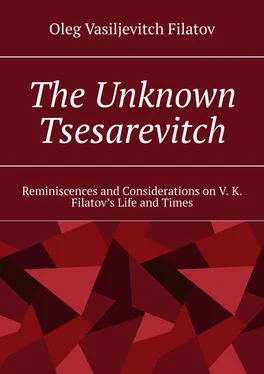Our family was there in the summer of 1989 in the region of Pitsunda
Father was a man with a broad outlook and a vast circle of people who had known him while he lived. He would tell us much about some interesting facts which he knew for various reasons. For example: where the state storehouses and special repositories were located, as well as the reserve command posts of defence objectives organized before the Revolution. So, when he lived in Ekaterinburg, the Staff Military Academy was quartered there and he knew many of the officers. Part of these officers went over to the Whites, part – to the Reds, and during World War II they already held high posts. These people knew him as Tsesarevich Alexei Nikolaevich Romanov, after the tragedy, even with changing his name, he needed no proof as to who he was. Not all of them but some could have helped him. 1
Of course, it is difficult to-day to describe all his connections because he was doomed to silence both by his origin and by the age. For some time during the Civil war he did not reveal his name and age because he could keep them concealed because of the unrest. And later, when the Soviet Republican Government declared that children are the future of the country, homeless children were gathered into orphanages, and father declared himself an orphan. At that time he was already 16—17. But one should say that he was always young-looking. He was not tall and had physical defects. Strange as it may be, the defects helped to conceal his age and origin. But he could not conceal his age completely, he could only forget who he was and when he was born, since, as he would say, he was 4 when his mother died, then his father died, too, and by 1921 none of his relatives remained alive. So, when, as a result of a round-up, he turned out to be in an orphanage, the doctor determined his age approximately from his teeth. He had not taken along any documents, let alone his birth certificate record, when crossing the front lines. He would try to keep out of sight. Some years later he made an inquiry about his birth certificate at Shadrinsk. We should dwell upon father’s style of life, his behaviour, his established habits, his special ability to adapt himself to life, and the environment where he would happen to be. With these facts left out of our account, one would not understand how he became who he was, the man we knew, and we knew only the second half of his life, i.e., beginning from 1953. Really how did he become? Who he became?
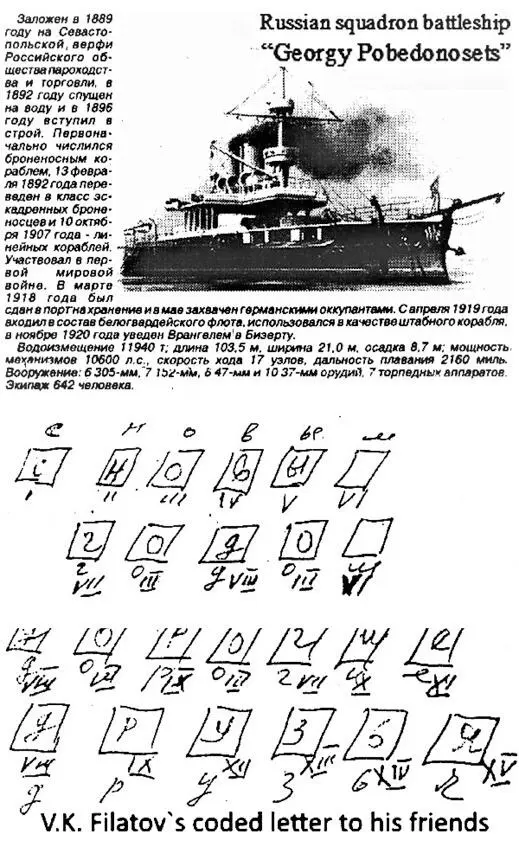
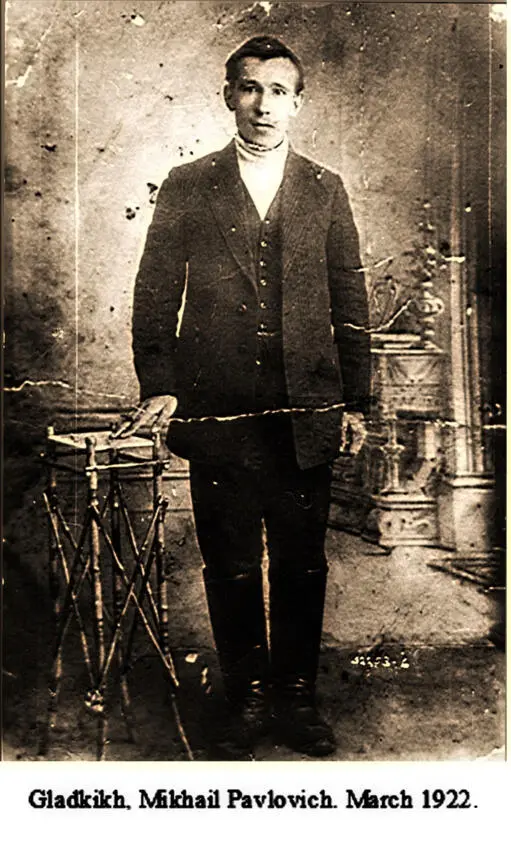
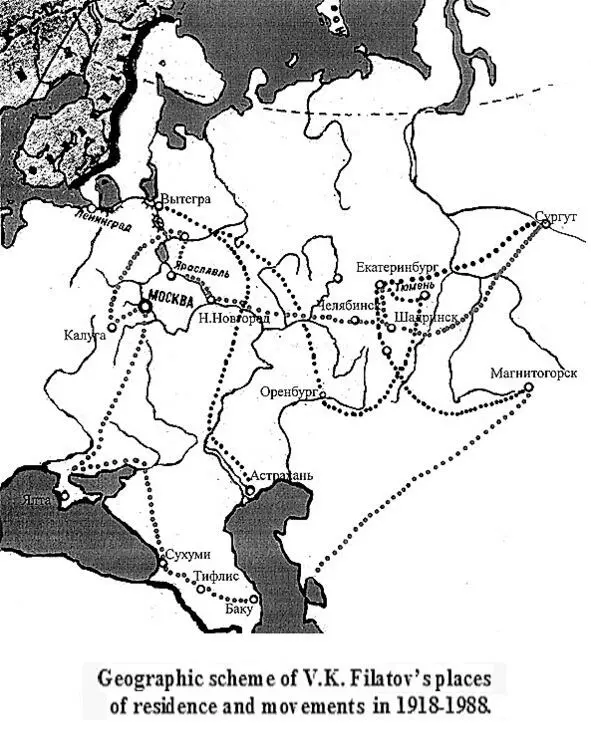
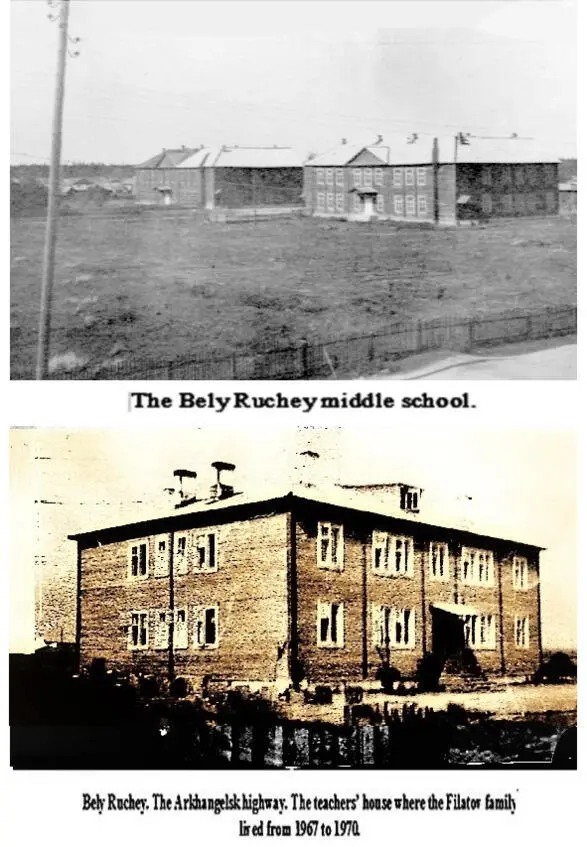
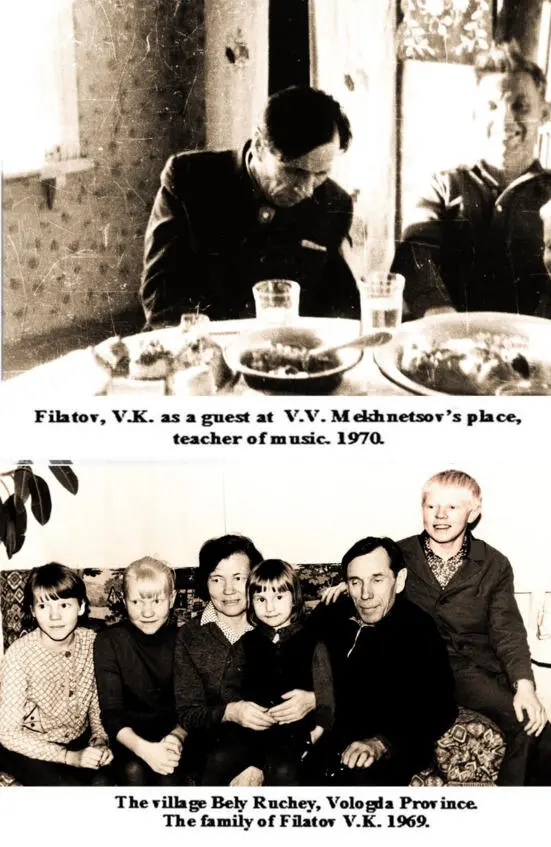
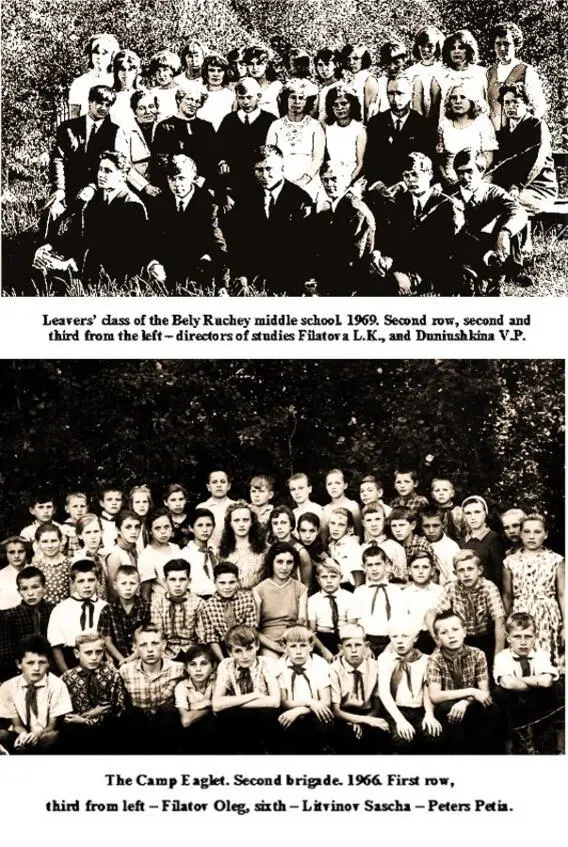
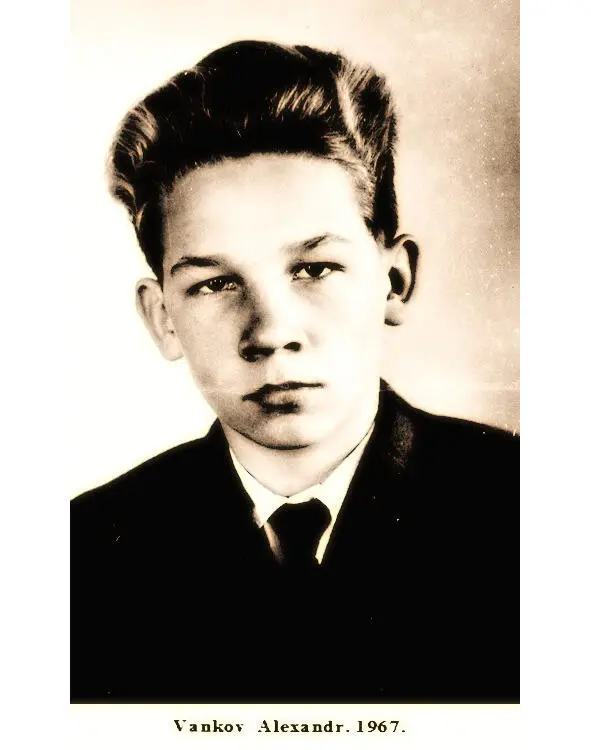
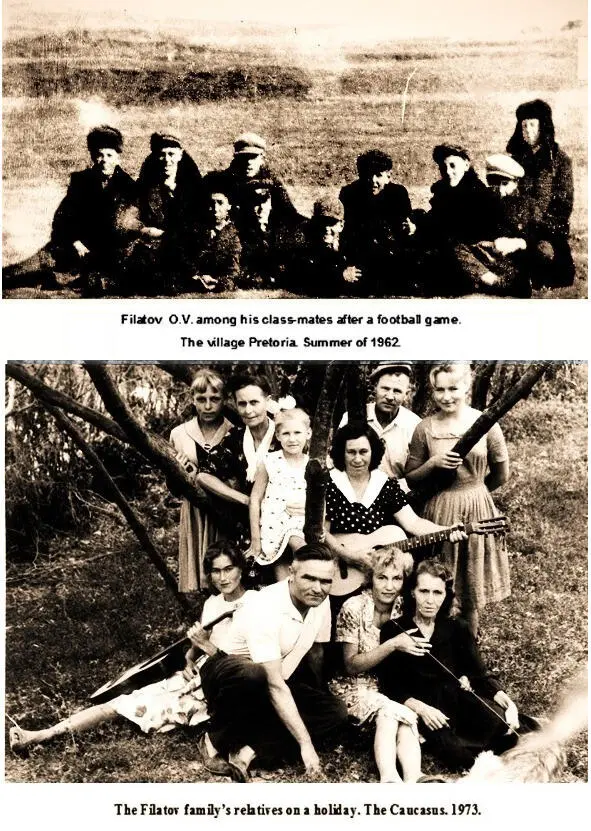
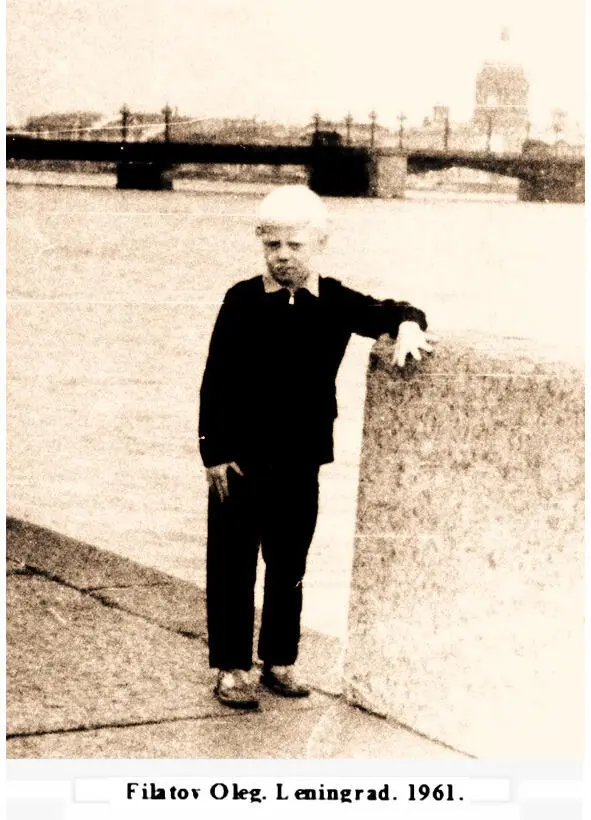
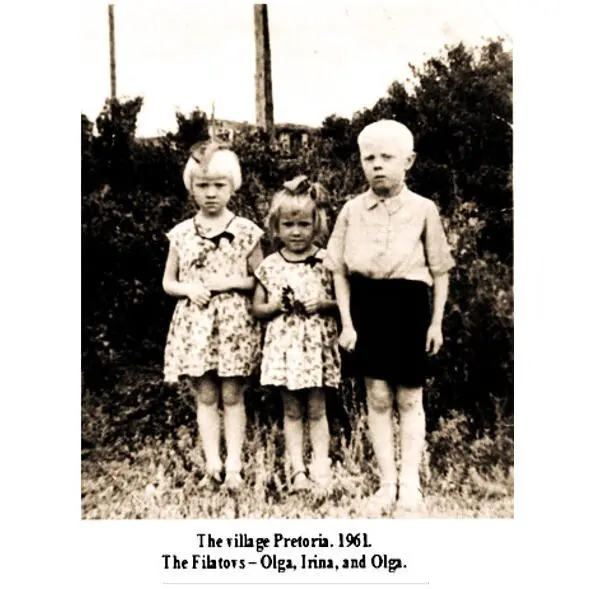
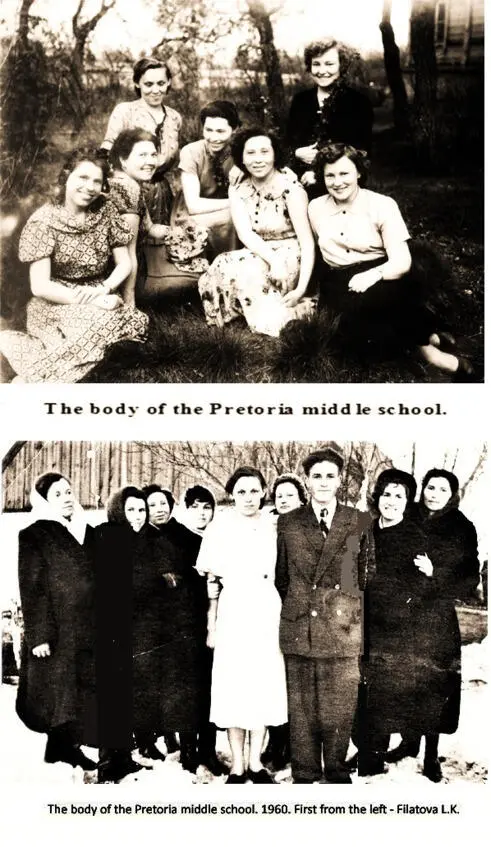
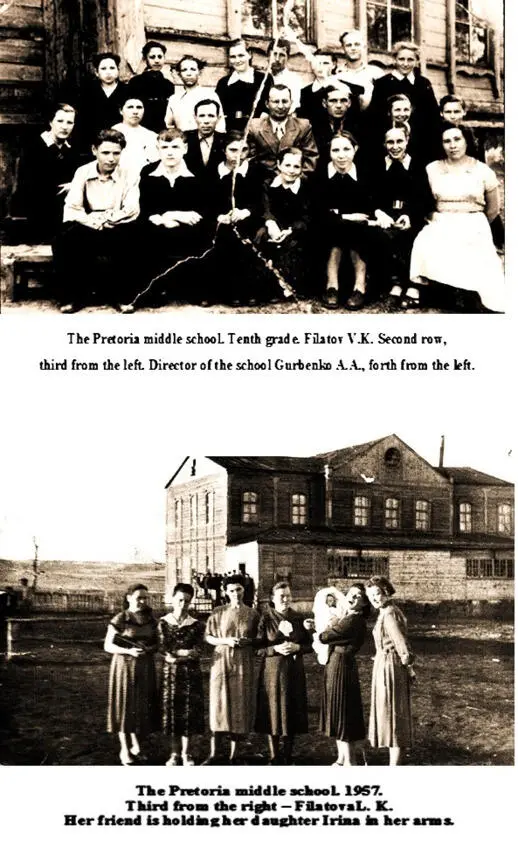
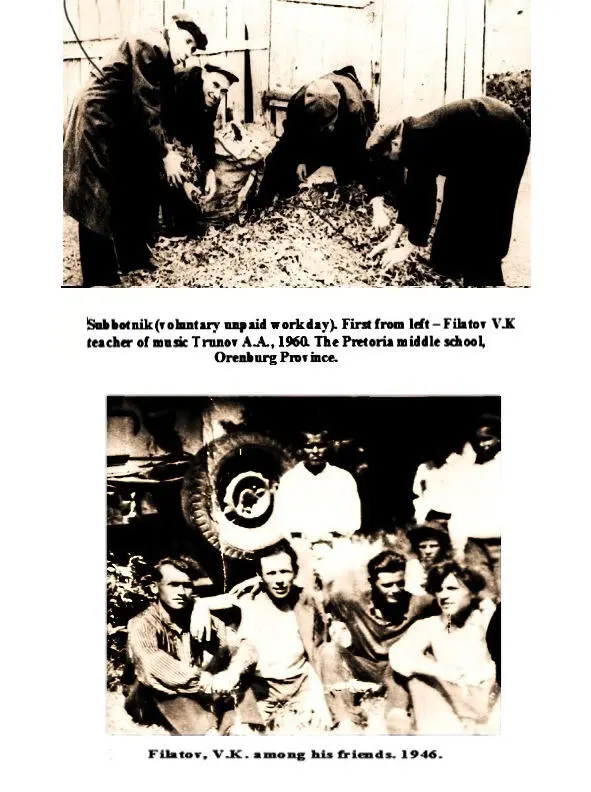
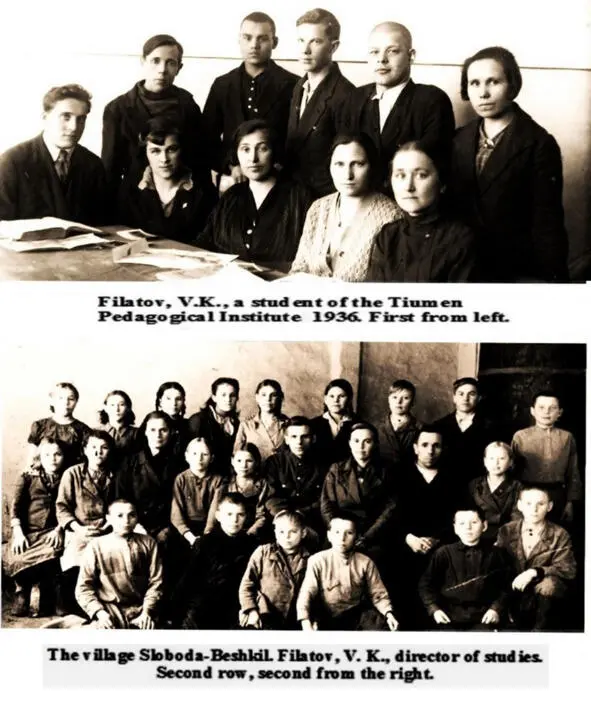
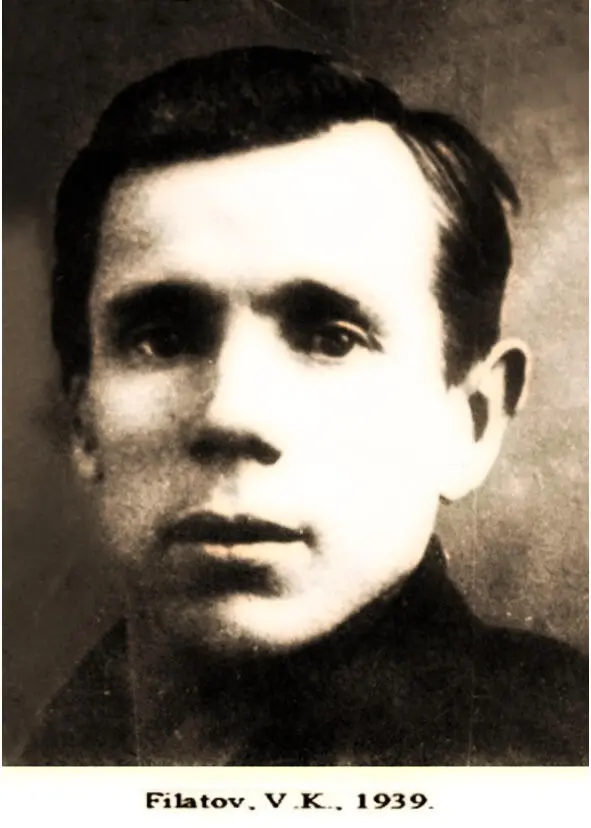
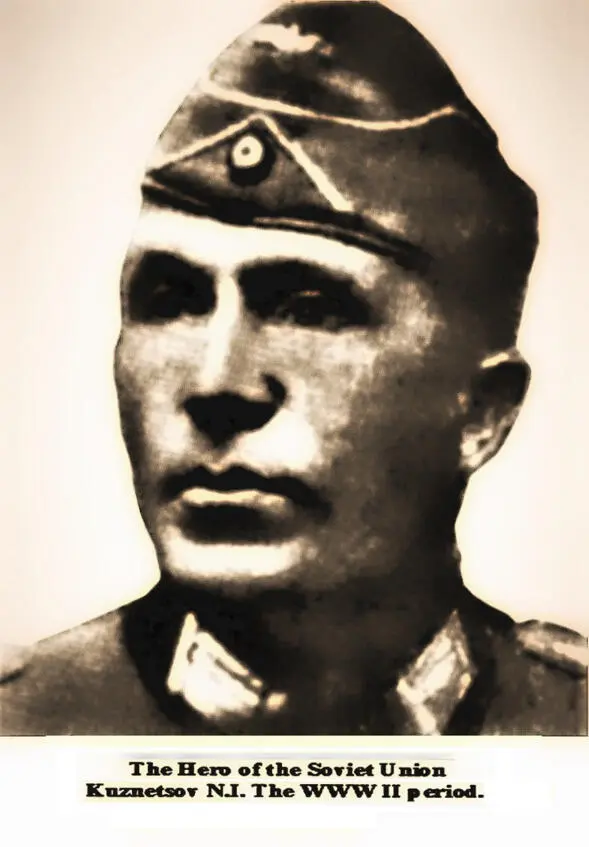
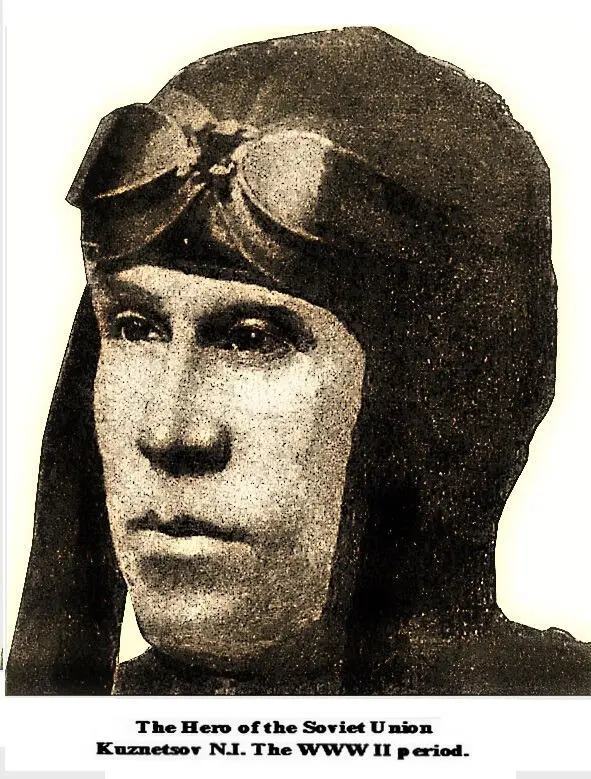
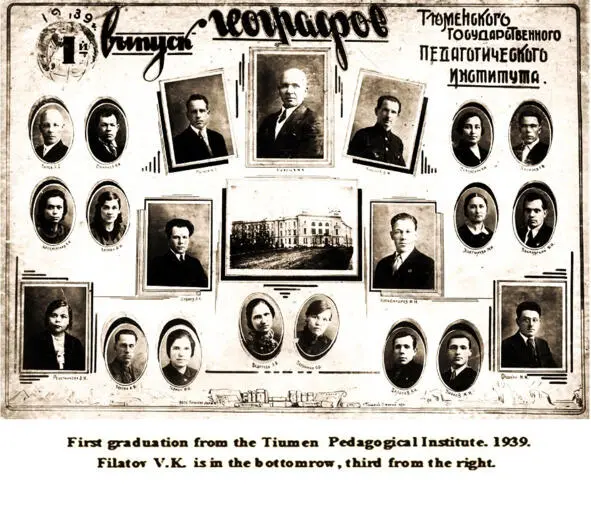
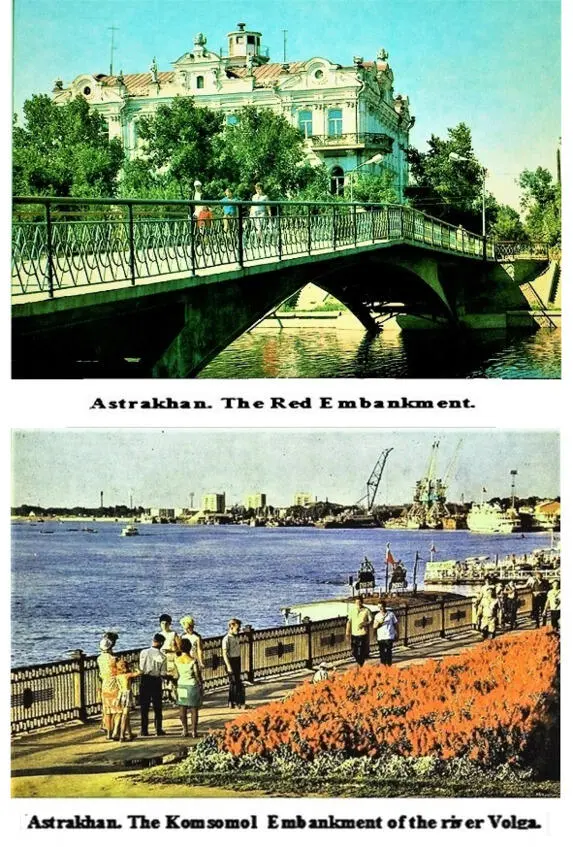
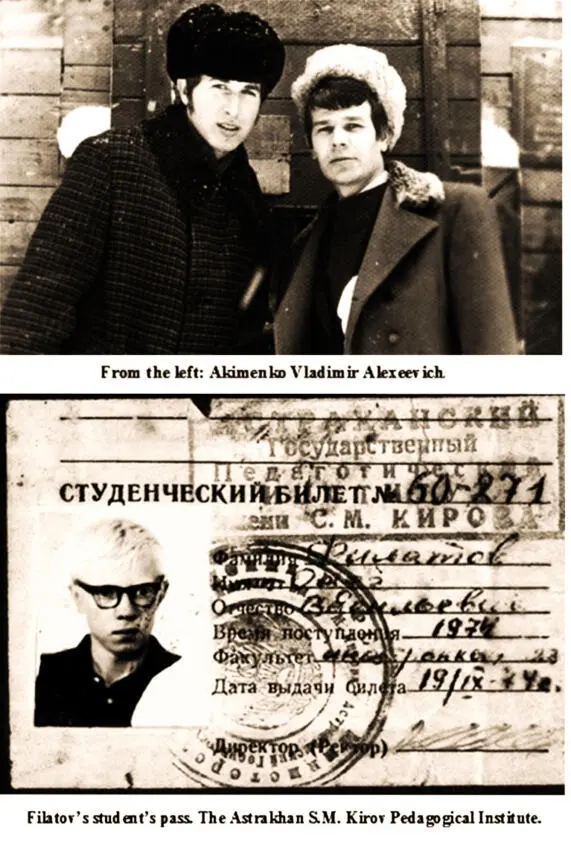
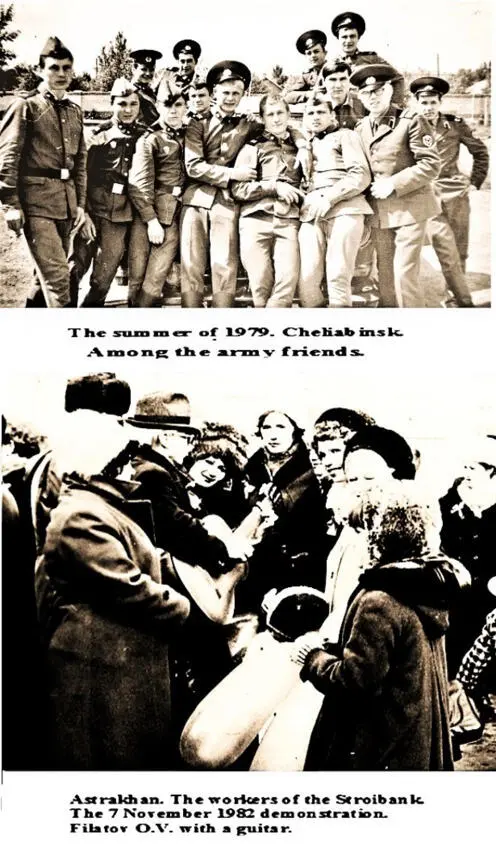
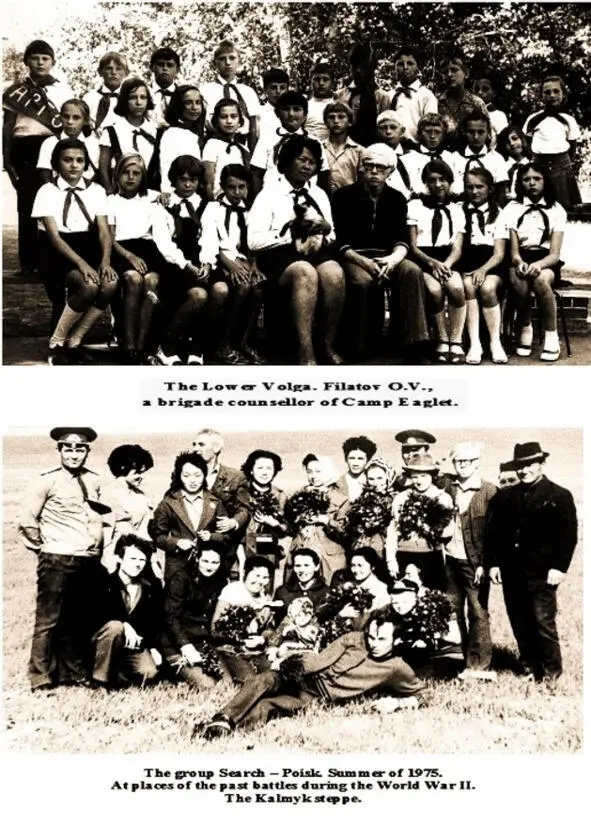
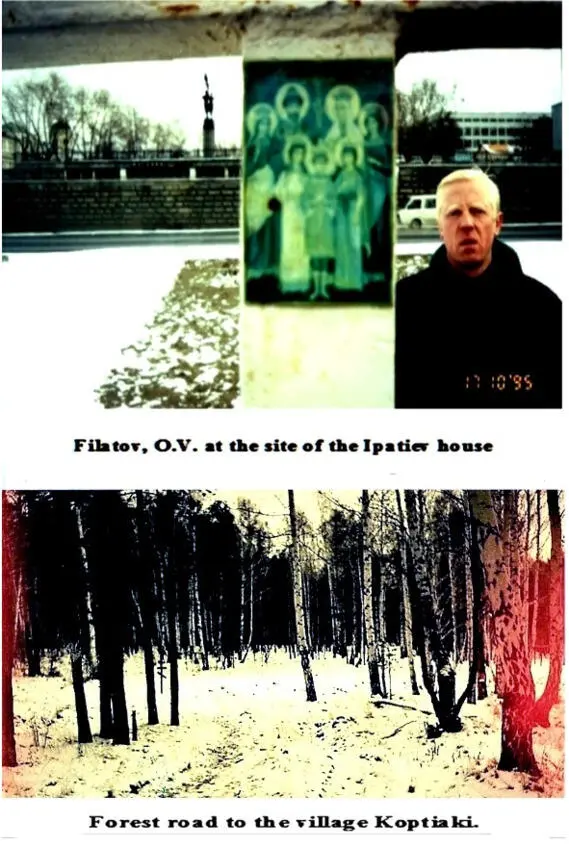
Chapter II
RELATIONS WITH OTHER PEOPLE
When I was 5—6 years old, we lived in the village of Pretoria, in a large house of cut limestone, with an enormous roof. The front part of the house was occupied by our family, the Urbanovichs lived behind us. They were also teachers in our school. Across the street lived our former director of studies Yakov Yakovlevich Kliver. The Trunovs lived next door. Trunov was the music teacher in our school. I observed that father associated with him both at work and after work. Father loved music and played various instruments, both keyboard and stringed. At school the music teacher Trunov Alexander Alexandrovich had bayans. Father would often take the school bayan, play it and sing songs. He did it in the following way: he would take the bayan, run his fingers over the buttons and then start playing. Especially popular were the war-time waltzes and the war-time songs – with lingering melody, sad, about the people’s lives, even sorrowful, one might say. I tried to understand then, what the matter was with him, why he was singing them if all of us were alive. But he would sing looking into the distance and suddenly would break off the song, sigh and lay the bayan aside. You could see how sad he was
Читать дальше
